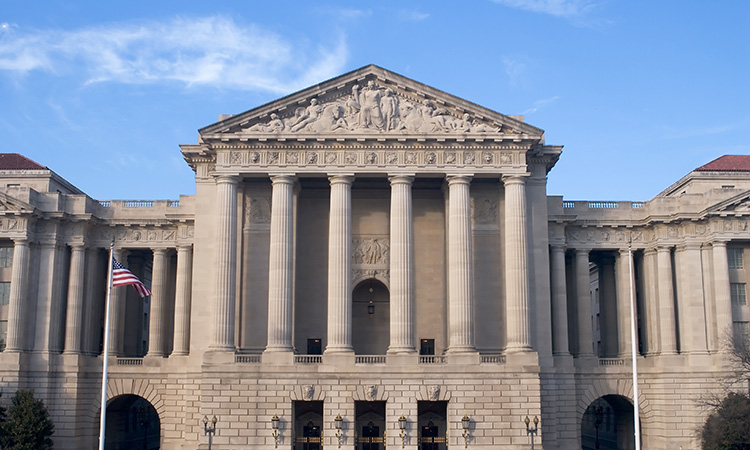
For decades the deadly health effects of asbestos have been recognized in numerous scientific studies. This carcinogen causes the deadly cancer mesothelioma and other diseases. While 55 countries have banned asbestos, including the European Union, Japan and the United Kingdom, the United States is not among them. This is due to pressure from big business interests, which have fought against an asbestos ban for decades.
Now it is apparent that asbestos exposure may be even more hazardous than previously thought. According to statistics from Dr. Jukka Takala, president of the International Commission of Occupational Health (ICOH), exposure to asbestos causes 39,000 deaths every year in the United States. This is a marked increase from the previous estimate of 15,000 deaths per year.
Globally, asbestos is still used in China, Brazil, Russia and India, putting the health of millions at risk. It has been proven that exposure to tiny amounts of asbestos is deadly, so if this is the case, why has the United States not banned this carcinogen outright?
The EPA’s Power Under the New TSCA
The Environmental Protection Agency (EPA) has the power to outlaw asbestos under the revised Toxic Substance Control Act (TSCA). At the same time, Linda Reinstein, the co-founder and president of the Asbestos Disease Awareness Organization (ADAO), is not optimistic about the agency doing so under current director Scott Pruitt.
Reinstein notes that the EPA’s most recent scoping document does not “call for evaluation of the risk of a particularly dangerous type of asbestos that’s in the insulation of an estimated 30 million homes.” Additionally, the EPA under Pruitt seems willing to look past consumer goods tainted with asbestos, even the toys and cosmetics marketed to children that have proven harmful.
The chemical industry has known for decades that asbestos is hazardous, yet they have vigilantly concealed those hazards, protecting corporate interests over people. The American Chemistry Council (ACC), an industry lobbying group, has gained an audience with Pruitt at the EPA, arguing for asbestos to continue being used in manufacturing diaphragms for chlorine and sodium chloride production.
Unfortunately, Pruitt has long proven himself to be a friend of industry as opposed to the American public or the environment. Since his confirmation, he has expressed reservations about an asbestos ban and has not prevented the continued use of other hazardous materials that have shown to be carcinogenic.
Same Story, Different Characters
The struggle for an asbestos ban has a nearly four-decades-long history, dating back to 1979. That year, the EPA stated that they would regulate asbestos under the TSCA. The American asbestos industry and Canadian government immediately countered by lobbying against these limitations since the United States imported 95 percent of its asbestos from Canada at the time. The EPA embarked on a 10-year study, collecting evidence that supported the hazards of asbestos use. The agency moved forward on its ban in 1989, planning to stop importation and use of more than 90 percent of goods that contained asbestos.
But as expected, the asbestos industry fought the ban, claiming that alternatives to asbestos were too expensive and not necessarily safer. The court agreed, and following the verdict, it has been difficult for the EPA to regulate asbestos aside from stating it cannot be used in new products. There have been efforts in Congress to ban asbestos in 2002 and 2007, but the bills have ended up clogged in committees or rewritten so they would have little to no effect on restricting the import and use of asbestos.
Touting “Transparency,” Pruitt Puts TSCA in Peril
Reinstein’s concerns about whether the EPA will ban asbestos have been validated by recent regulations proposed by EPA director Pruitt. Instead of working to enforce the TSCA, he has launched an assault on its intended purpose, requiring rules that would limit the use of scientific studies in EPA regulations.
While Pruitt claims these rules will increase transparency, they are merely a ruse for Pruitt and industry executives who have become EPA “consultants” to toss out valid scientific studies the EPA deems not “reproducible.” Many of these studies involve scientific evidence proving the risks that various chemicals pose to human health. The ACC has heartily endorsed this course of action, realizing they will be protected from regulation at the cost of consumers’ well-being.
Petitioning for Power to the People
Americans must make their voices heard if the decades-long fight for an asbestos ban is to be realized. Led by Reinstein, the ADAO is circulating a petition that has been signed by nearly 12,000 people, calling for an outright ban on asbestos in the United States. Please take this opportunity to sign your name and be a voice for consumer health, because this fight cannot end until we the people have won.




